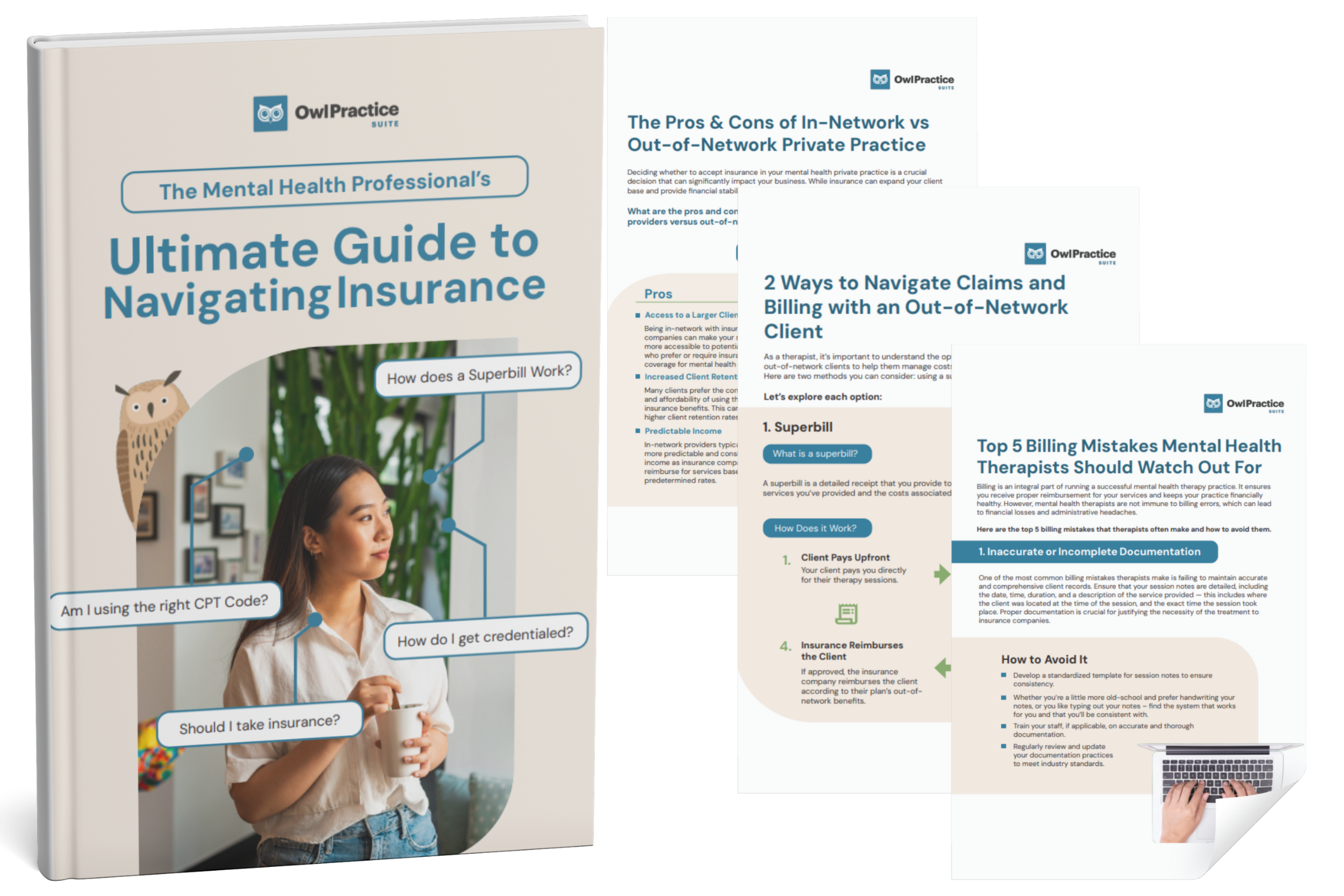As a therapist, it’s important to understand the options available for handling billing with out-of-network clients to help them manage costs and continue their therapy sessions. Here are two methods you can consider: using a superbill or offering courtesy billing.
Let’s explore each option.

1. Superbill
What is a superbill?
A superbill is a detailed receipt that you provide to your clients. It lists the services you’ve provided and the costs associated with each session.
How does it work?
- Client pays Upfront: Your client pays your directly for their therapy sessions.
- Provide the Superbill: You give them a superbill after each session or periodically, like at the end of each month.
- Client Submits to Insurance: The client submits the superbill to their insurance company for reimbursement.
- Insurance Reimburses the Client: If approved, the insurance company reimburses the client according to their plan’s out-of- network benefits.
Benefits of Using a Superbill
- Less Administrative Work for You: You don’t deal with insurance companies directly.
- Transparency for Clients: Clients see exactly what they are paying for and what they might get reimbursed.
- Empowers Clients: Clients take an active role in their reimbursement process.
2. Courtesy Billing
What is courtesy billing?
Courtesy billing is when you, as the therapist, submit insurance claims on behalf of your clients, even if you are out-of-network.
1. Without Accepting Assignment
- Client Pays You Directly: The client continues to pay you for each session at your full Self-pay rate.
- Therapists Submit Claims: You send the insurance claims on behalf of the client. You click “do not accept assignment” on the claim form.
- Client Receives Reimbursement: The insurance company reimburses the client directly if the claim is approved and pays the allowable out-of-network payment amount. Ex: 20%.
- Why This Way?: It simplifies payment processing for you and ensures clients get reimbursed directly.
2. With Accepting Assignment (Generally Not Recommended)
- Therapists Submit Claims: You send the insurance claims on behalf of the client. You click “accept assignment” on the claim form.
- Insurance Pays the Therapist: You receive payments directly from the insurance company.
- Complex Reconciliation: You must reconcile payments between what the insurance covers and what the client owes, which can be complicated and time-consuming.
Benefits of Courtesy Billing
Convenience for Clients: They don’t have to handle the paperwork and claim submission themselves.
Potentially Higher Client Retention: Reducing the administrative burden can help keep clients in therapy.
⚠️ Important Considerations
Always check with the client’s insurance provider to ensure they accept courtesy claims and clarify any specifics about reimbursement processes.
Summary
Superbill
Client pays upfront, you provide a detailed receipt, and the client handles insurance submissions and reimbursements.
Courtesy Billing
You submit claims on behalf of the client. Best practice is not to accept assignment to avoid complex payment reconciliation.
Choosing the right method depends on your practice’s administrative capacity and your client’s preferences. Always verify the details with the client’s insurance provider to ensure smooth processing.

Get the “Ultimate Guide to Navigating Insurance” eBook Below!
Reduce clinical administrative tasks and transform more lives with Owl Practice. Owl Practice provides all the tools you need to make your practice successful. Join the thousands of care professionals using Owl to run their practice every day.



